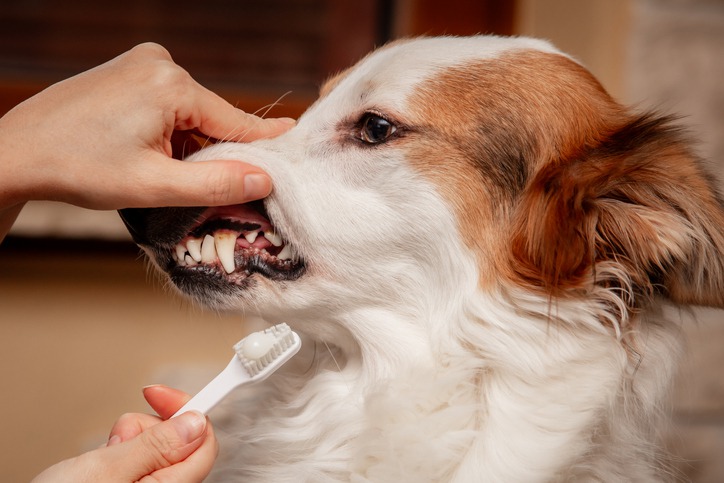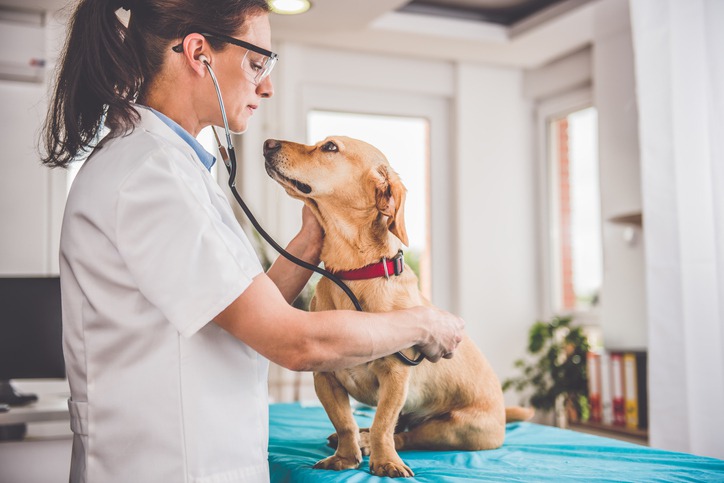Understanding your pet’s health can be overwhelming. Veterinary Internal Medicine plays a crucial role in diagnosing and managing common pet illnesses. Through specialized techniques and preventive care, veterinary internal medicine helps ensure that your pet remains healthy and happy.
What is Veterinary Internal Medicine?
Veterinary Internal Medicine focuses on diagnosing and treating complex health issues in pets. This specialized field covers a wide range of internal illnesses that can affect your pet’s overall well-being. Internal medicine specialists are trained to handle diseases that impact your pet’s internal organs, such as the heart, kidneys, liver, and endocrine system.
Common Pet Illnesses Diagnosed by Internal Medicine Specialists
There are several common illnesses that internal medicine specialists diagnose and treat:
-
Diabetes: Pets with diabetes may exhibit symptoms such as excessive drinking and urinating, weight loss, and changes in appetite. Managing diabetes requires careful monitoring of blood glucose levels and insulin therapy as prescribed by an internal medicine specialist.
-
Kidney Disease: Kidney disease is prevalent in older pets. Symptoms include weight loss, changes in appetite, and increased thirst and urination. Early diagnosis and management can improve quality of life and slow the progression of the disease.
-
Heart Conditions: Heart conditions in pets can range from congenital defects to acquired diseases like cardiomyopathy. Symptoms include coughing, exercise intolerance, and difficulty breathing. Internal medicine specialists use advanced diagnostic techniques to identify and manage these conditions effectively.
Diagnostic Techniques Used in Veterinary Internal Medicine
Veterinary internal medicine specialists employ various diagnostic methods to diagnose and treat pet illnesses accurately.
-
Blood Tests: Blood tests are essential for assessing organ function and detecting diseases. These tests provide valuable information on your pet’s overall health and help in diagnosing conditions like diabetes, kidney disease, and liver disorders.
-
Ultrasound: Ultrasound imaging is useful for visualizing internal organs and checking for abnormalities. This non-invasive technique allows veterinarians to get a detailed view of your pet’s organs, helping them identify issues such as tumors, cysts, or blockages.
-
X-rays: X-rays are important for examining bones and internal structures to identify potential issues. They can help diagnose fractures, heart conditions, and foreign objects ingested by your pet.
Monitoring and Managing Chronic Conditions
Chronic conditions require ongoing monitoring and management to ensure your pet’s health and well-being. A vet internal medicine specialist plays a key role in this process, providing comprehensive care tailored to your pet’s needs.
-
Regular check-ups are vital for tracking the progression of chronic conditions and making necessary adjustments to treatment plans.
-
Specialized diagnostic tests help continuously monitor your pet’s health status.
-
Medications, dietary changes, and lifestyle adjustments are often recommended to manage chronic conditions effectively.
Preventive Care in Veterinary Internal Medicine
Preventive measures play a crucial role in maintaining pet health and preventing serious illnesses. Regular vaccines for dogs and cats are one of the most important aspects of preventive care, protecting against a variety of diseases such as rabies, parvovirus, and distemper.
Veterinary internal medicine specialists emphasize the importance of regular vaccinations, diagnostic screenings, and preventive medications to keep your pet healthy and reduce the risk of serious health issues.
Advanced Veterinary Care: When to Consult a Specialist
Understanding when to consult a vet internist can significantly improve your pet’s health outcomes. If your pet exhibits persistent symptoms that don’t improve with standard treatments, it’s time to seek specialized care.
Some indicators that your pet may need to see an internal medicine specialist include:
-
Unexplained weight loss
-
Prolonged vomiting or diarrhea
-
Changes in appetite or behavior
-
Persistent coughing or difficulty breathing.
-
Increased thirst and urination
-
Unresolved infections or fevers
In some cases, pets may require surgical intervention as part of their treatment plan. When surgery becomes a necessity due to certain conditions identified by internal medicine specialists, the role of experienced dog surgeons in White Hall, AR, is integral. Collaborating with skilled surgeons ensures that your pet receives the best possible care.
Why Advanced Imaging Techniques Matter
Advanced imaging techniques have revolutionized veterinary internal medicine by providing detailed insights into your pet’s internal health. These technologies include CT scans, MRI, and endoscopy, which offer highly detailed images and diagnostics that go beyond traditional methods.
-
CT Scans: Computed Tomography (CT) scans provide cross-sectional images of your pet’s body, allowing for detailed examination of tissues, bones, and organs. This can be particularly useful for diagnosing complex conditions like tumors, bone fractures, and internal bleeding.
-
MRI: Magnetic Resonance Imaging (MRI) is a powerful tool for visualizing soft tissues, such as the brain, spinal cord, and muscles. It’s especially useful for diagnosing neurological conditions, soft tissue injuries, and detailed organ assessments.
-
Endoscopy: Endoscopy involves the use of a thin, flexible tube with a camera at the end to visualize the interior of your pet’s gastrointestinal tract, respiratory tract, or other cavities. This minimally invasive technique can help identify issues such as foreign objects, tumors, or inflammation and sometimes allows for immediate treatment or biopsy.
Final Thoughts
Veterinary Internal Medicine is vital for accurate diagnosis and effective treatment of your pet’s health issues. By working with internal medicine specialists, you can ensure that your pet receives comprehensive care tailored to their specific needs. Don’t overlook the importance of preventive measures, such as regular vaccinations, to maintain your pet’s health. For more detailed information, be sure to check out additional resources and consult with your veterinarian.



